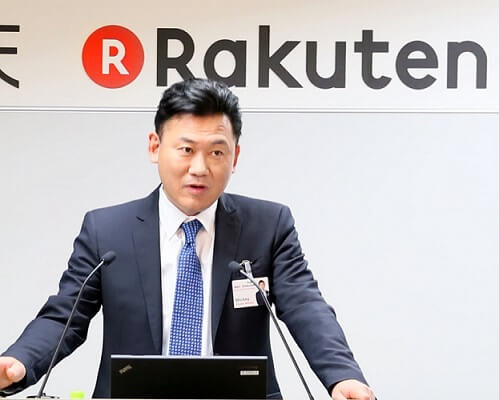
Old work habits, especially the toxic ones must go to improve the overall health of the workplace. A recent report by Myers-Briggs Company says that old habits entrenched in the workplace might be holding back the business. One of the major habits that need to see the door is the “always on” culture that as the study points out leads to disproportionate work-life balance, stress, poor performance, and ill-health among employees. Employers also need to let go of the narcissistic leaders and replace them with leaders who inspire and motivate. Employers need to upskill leaders in interpersonal skills and as a second step train leaders about effective leadership approaches.

Hybrid Jobs are the latest to hit the town and they are here to stay as per a long-tailed study by Burning Glass Study. The people who manage multiple skills like, marketing with statistics or IT with creativity have a piece of two-pronged good news. The first is the unique combination makes them a rare occurrence and thereby eligible for premium pay package. The second advantage is that these unique skills make their job automation resistant. Case in point is the marketing managers with data analysis skills who earned 40% more than the ones who did not. In another instance 2010 saw just 150 job postings for people who were experts in applying statistics to business problem concentrated in Wall Street. A contrasting scenario is that of 2017, with 1.7 million job postings for data science in every conceivable industry. Burning Glass first started tracking the hybrid jobs in 2015 and are now slated to grow by 21% in the coming decade as opposed to the overall job market expected to grow by 10% in the same time.

Japanese billionaire Hiroshi Mikitani of Rakuten, the country’s leading e-commerce portal, is taking collective organizational learning and development to a new dimension yet again. Mikitani recently announced that it would require all of its 17,000 employees to learn computer science beyond mere usage, followed by a mandatory knowledge of programming for all entry-level hires. Rakuten faces increasing competition from the likes of Amazon who are trying to gain a foothold in the lucrative world of Japanese e-commerce. Experts on the subject opined that this could be a step in the right direction for Rakuten, where employees could play a crucial role in understanding technology and effective decision making beyond mere technology buzzwords.

Global Body on Higher Education the Business Higher Education Forum, in collaboration with The Burning Glass, recently released its report based on the analysis of 150 million job postings and CVs across the US for more than a decade. According to the report, the entry-level and managerial jobs of the future will be heavily based on the 3 skill pillars of sound technical knowledge, strong human and interpersonal skills and deeply founded business acumen. It is important to note that the report transcends jobs in the technology industry and applies equally to all sectors. Employers have cited these as the top 3 requirements in their new job postings across the country.

HR experts have warned jobseekers of the severe impact that any kind of notoriety on social media can have on their career prospects since the advent of Facebook and LinkedIn. A new report by First Advantage has reinforced the importance of the advice. The employer survey points out that 60% of employers presently screen a prospective employee’s social media profile comprehensively for any incidences of drug use, violence or any kind of unlawful activity. The report also notes that this practice has surged by more than half within the past two years. As screening and background checks become increasingly more comprehensive, talent managers are looking to reduce their hiring turnaround times and are increasingly turning to third-party agencies to handle these checks.

One of the largest investment banking conglomerates in the world is throwing the gauntlet on workforce diversity issues, an example that is expected to be widely replicated in the very constrictive world of corporate finance. Goldman Sachs recently announced its target of entry-level hires comprising exclusively staff of black and Hispanic origin at 11% and 14% for the current year, respectively. This initiative is also expected to be stretched worldwide, as the investment banking giant also announced 9% of its entry-level workforce to be black, in the UK. In a recent memo, the company announced it was “nearly there” in reaching its diversity hiring targets that were announced a year ago.

It’s the story Hollywood flicks are made of, and one that was ironically first reported by Hollywood Reporter. Warner Bros Chairman and CEO, Kevin Tsujihara, recently announced his resignation from the top job after reports of his alleged affair with Charlotte Kirk, whom he had promised career opportunities, namely, roles in the studio’s movies in exchange for sexual favors. Tsujihara, who has held the job at the media giant since 2013, sent out a memo announcing his resignation, stating that he would not let unnecessary media hype turn the limelight away from the stellar achievements that the company had had under his leadership. The company is investigating his behavior with full cooperation from his end, it was reported.

Employee disability management and absenteeism management were the two biggest hurdles organizations were currently facing, in a survey reported by The Standard recently. From among 501 organizations surveyed, more than half earned low C, D or F grading in their disability readiness and absenteeism management. This is further reflected in the fact that among the organizations surveyed, only 25% of the HR personnel conceded that they had disability friendly facilities and had absenteeism well under control. This, even as more and more companies are choosing to outsource their FMLA management to third parties. HR personnel attributed the problems largely to the “constantly changing disability laws and guidelines”.

The estimated global talent shortage will be 85.2 million people by 2030 and that will result in $8.4 trillion worth of unrealized annual revenue as per a 2018 study by Korn Ferry, an executive search brand. Microsoft owned LinkedIn just like many others in the economy are looking at AI to get a solution to this dilemma. The social network targeted towards professionals has an AI-based strategic business platform that uses 610 million users’ data to judge talent competition in a particular area. Companies like EY, Citizens Bank NA and IBM are looking at AI as one of the biggest recruitment tools as a Gartner study indicates increasing use of AI in talent acquisition with 23% of responding companies in U.S. and Canada saying that the use of AI in their company is for recruitment.

CEOs are troubled and “people problem” is the most significant part of their sleepless nights. A recent report by Predictive Index surveyed 156 head of companies to create, what they call Annual CEO Benchmarking Report 2019. Strategy development and talent development as per the report came up as the top ranking challenges of this year. Nearly 70% of the leaders opined that they need help in talent-related strategies like pre-hire selection, worker performance, and leader development. A good two-thirds of them opined that nearly half of their costs came from employee-related expenses. Finding the right talent, aligning employees with talent strategy, maintaining a positive work environment while getting the maximum performance by workers was in the top of their talent optimization challenges.

PG&E Corp, the power utility that filed for bankruptcy protection this January, anticipating overwhelming liabilities after many wildfires, especially the massive 2018 Camp Fire that blazed 85 lives is all set to revamp with a new executive board. The triad of activist investor firms – Knighthead Capital Management LLC, Abrams Capital Management LP, and Redwood Capital Management LLC are backing the utility’s move to appoint a fresh board. P&GE is on the heels of selecting a brand new CEO alongside offering 10 new independent board candidates, the names of whom are expected to be revealed the next week. Bill Johnson, CEO of Tennessee Valley Authority who is all set to retire from his current post this April is the frontrunner for the office of CEO at PG&E.

Shake Shack Inc., the place of a gourmet burger and “concrete” milkshakes are the latest to take an innovative voyage amidst a tight job market and is experimenting on a four day work week. Average hourly earnings at limited-service restaurants saw a spike of 4.5% in the New Year through January, outpacing the growth of all other industries. Shake Shack’s experiment, if successful will be a novelty in the restaurant. The restaurant chain is currently trying the four-day work schedule in some of its Las Vegas units. At the same conference where Shake Shack Inc. made the four-working-day-experiment announcement, Steve Joyce, CEO of Dine Brands Global Inc. remarked that “Labor costs are a flashpoint. The labor market is going to be tough this year. It will probably be tough next year.”

The update is almost complete on the 15-year-old U.S. Department of Labor minimum salary threshold for overtime as it is pending to get published on Federal Register after which it will be subject to a 60-day public comment period. Employers can meanwhile set the stage to tackle if not welcome the revised threshold of $35,308 a year or about $679 per week, which is lesser than the proposed $47, 476 of Obama Administration. The three major pointers in employers’ checklist will be - auditing wage standards with both the Fair Labor Standards Act and its duties test, calculating the cost of raise versus the cost of overtime and employee morale and submitting yours say in public comment section.

Chris Cox, Chief Product Officer Facebook, most prolific of product leaders in the company after Mark Zuckerberg, CEO is all set to leave after a decade long association. Cox’s announcement makes him the first among the highest ranks of the social-media giant to leave after last year’s crisis. His moving out is attributed to the big shift in the company’s focus from public sharing to close integration of apps and use more encryption to cull the privacy concerns. Cox was a significant influence not just in transforming Facebook into a personalized information platform, but also designing the company culture. The shares fell by almost 2% in extended trading after his announcement. The company opines that the next era of product development is here and it will be starkly different from the previous era and the integration of apps will be led by Javier Olivan who earlier worked for Cox and is the one behind the growth across the company’s apps.

Riding the industry-wide wave technologically driven cars that includes electronic and self-driven variants Volkswagen AG’s namesake brand announced that it will slash up to 7,000 administrative jobs over the next five years. The cut comes on top of the “Pact for the Future”, a 2016 plan in which VW was set to cut 23,000 jobs that are about 19% of VW workforce via early retirement and natural fluctuation. VW is the core brand of Volkswagen AG and its targeted operating profit fell from 4.2% to 3.8%, partly due to its investment in technology. The company plans to raise this margin by 6% by 2020 and prepare for the challenges ahead of them after 2020. The company just like many in the industry is struggling to transition from horsepower to digital-power as Silicon-Valley giants like Google, Amazon and Tesla and ride-hailing Uber bring forth technical disruptions.

Hospitality and retail workers are worried that they may be way behind the mark in their technical skills – at least half of them are as per new research from CGS that surveyed more than 600 workers in the industry. Training and development are ranking just after salary while these workers look for a new job. The research also found out that 27% of those who were surveyed said that they felt to be on their own when it came to training. The numbers spiked to 40% when it came to the telecom industry. Instructor-led training seems to be catching up as a favored method of learning with 37% of workers saying that they found it to be the most engaging.

Didi Chuxing, the Chinese ride-sharing giant who once drove Uber out of the country is laying off 2,000 employees, i.e. 15% of its workforce and letting go of the free snacks and complimentary yoga classes. It is not just this former national champion who is cutting cost to survive a declining growth, but names like NetEase, the gaming company and JD.com the e-commerce giant of China are also taking a similar road. Job vacancies in China’s, once formidable internet industries had declined by 20% in the last quarter of 2018 when compared from a year earlier. Experts believe that the road ahead is more perilous as the internet industry tries to cope with China’s sputtering economy.

McDonald’s is aiming to create feel-good moments for all and creating an all-inclusive and welcoming approach and is relying on Textio to make its recruitment process faster, better and bias-free. Textio is an augmented writing platform that uses a “massive data set of real-world hiring outcomes from hundreds of millions of job listing.” The interface then compares the language in similar documents to allow hiring managers to use the most appropriate words to draft a job description. In McDonald’s case, the brand intends to create a hiring language that puts the brand’s image as an equal-opportunity workplace by posting gender-neutral job posts.

The Great Room, Singapore’s co-working space is a notch above the average workspace in terms of luxury. With Marble floors, brushed gold finishing and coconut water in pantry fridge it is a far cry from those utilitarian co-working space. With its collaboration with the Raffles Hotel, this luxury will get a facelift. The 1500 square feet space in the Raffles Hotel will be first of its kind co-working space in a five-star hotel. The Great Room offers dedicated office space memberships that start from $1,840 per month that is 20% higher than its competitor We Work. Co-founder and Chief Executive Officer Janelle Ang say that the co-working space targets older entrepreneurs who after a successful career are starting with their own business venture.

Rite Aid Corp announced that it plans to cut 400 corporate positions that will affect 20% of the employees based at it is Camp Hill, Pennsylvania headquarters. The Tuesday announcement comes along with the planned exit of John Standley, Rite Aid CEO since 2010. The company that registered a loss in three out of four quarters of 2018 after selling 1,900 stores to Walgreens Boots Alliance Inc. in 2017 plans to go for a complete reshuffle and revamp to set an annual savings of $55 million out of which $42 million will be realized within the financial year of 2020. Rite Aid also announced the exit of Chief Financial Officer Darren Karst and Chief Operating Officer Kermit Crawford indicating virtual executive management step down to leave the company in the hands of Rite Aid veterans.
This website uses cookies to enhance website functionalities and improve your online experience. By browsing this website, you agree to the use of cookies as outlined in our privacy policy .